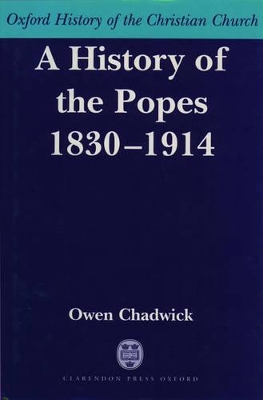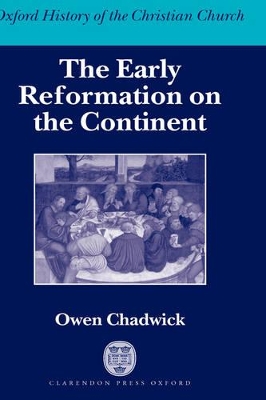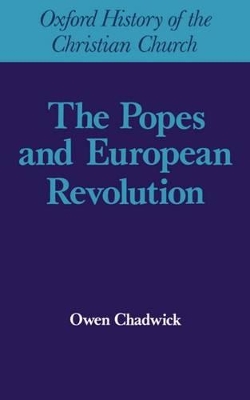Oxford History of the Christian Church
3 total works
Could a Pope ever consent to be the subject of a political power? Owen Chadwick presents an analysis of the causes and consequences of the end of the historic Papal State, and the psychological pressures upon old Rome as it came under attack from the Italian Risorgimento; and not only from Italy, but from liberal movements in Germany, France, Spain, and Portugal, as well as Tsarist Russia as it oppressed its Polish subjects. If a united Italy was to be achieved, the
State must disappear.
These pressures caused Popes to resist 'the world' rather than to try to influence it, to make the Vatican more of a sanctuary behind high walls, and to preach the more otherworldly aspects of Catholic faith. At the same time they met new moral demands: the rights of the labourer in industry, divorce, toleration, which they could confront because the Revolution had destroyed the powers of the Catholic kings over their churches, and therefore Catholic authority could be far more centralized in
Rome.
State must disappear.
These pressures caused Popes to resist 'the world' rather than to try to influence it, to make the Vatican more of a sanctuary behind high walls, and to preach the more otherworldly aspects of Catholic faith. At the same time they met new moral demands: the rights of the labourer in industry, divorce, toleration, which they could confront because the Revolution had destroyed the powers of the Catholic kings over their churches, and therefore Catholic authority could be far more centralized in
Rome.
The Early Reformation on the Continent offers a fresh look at the formative years of the European Reformation and the origins of Protestant faith and practice. Taking into account recent work on Erasmus and Luther, Owen Chadwick handles these and numerous other figures and with sensitivity and understanding. Emphasis on the context provides a balanced view of the raison d'etre for the changes which the reforming communities sought to introduce and the
difficulties and disagreements concerning these. The structure of the book is distinctively original. Rather than following a conventional chronological progression, Owen Chadwick takes a much broader perspective and arranges his material thematically. Whatever the topic - the Bible, clerical celibacy, moral
questions of adultery and divorce, purgatory, hymns, excommunication, the role of the State in worship and pastoral activity, education, the Eucharist - the reader is taken back to its origins and development through the history of the western Church and given an authoritative, accessible, and informative account.
difficulties and disagreements concerning these. The structure of the book is distinctively original. Rather than following a conventional chronological progression, Owen Chadwick takes a much broader perspective and arranges his material thematically. Whatever the topic - the Bible, clerical celibacy, moral
questions of adultery and divorce, purgatory, hymns, excommunication, the role of the State in worship and pastoral activity, education, the Eucharist - the reader is taken back to its origins and development through the history of the western Church and given an authoritative, accessible, and informative account.
Owen Chadwick describes the effects of the European Revolution of 1789 to 1815 on the Papacy, and compares Catholic Church of the ancient regime to that of the early nineteenth century. The book shows how strongly the Counter-Reformation still worked in Italy during the eighteenth century; how it was the constitutional development of states, rather than the incoming of new ideas, which forced change; how traditional was the Catholic world even in the age of the
Enlightenment. It shows reform at work, and the fierce pressure on the Papacy marked first in the forced suppression of the Jesuits and afterwards in the kidnapping of two successive Popes by French governments. It shows how revolution in Italy affected church structures and brought on peasant war, yet
encouraged, in a radical form, some improvements of church life towards which the earlier reformers had striven. Finally, it shows the political swing of the Restoration after the fall of Napoleon, the way in which the Church was already associated with the political right, the great difficulties of restoring church life after the evolutionary years, and the persistence, half unnoticed, of the earlier reforming ideas among Catholics.
Enlightenment. It shows reform at work, and the fierce pressure on the Papacy marked first in the forced suppression of the Jesuits and afterwards in the kidnapping of two successive Popes by French governments. It shows how revolution in Italy affected church structures and brought on peasant war, yet
encouraged, in a radical form, some improvements of church life towards which the earlier reformers had striven. Finally, it shows the political swing of the Restoration after the fall of Napoleon, the way in which the Church was already associated with the political right, the great difficulties of restoring church life after the evolutionary years, and the persistence, half unnoticed, of the earlier reforming ideas among Catholics.


